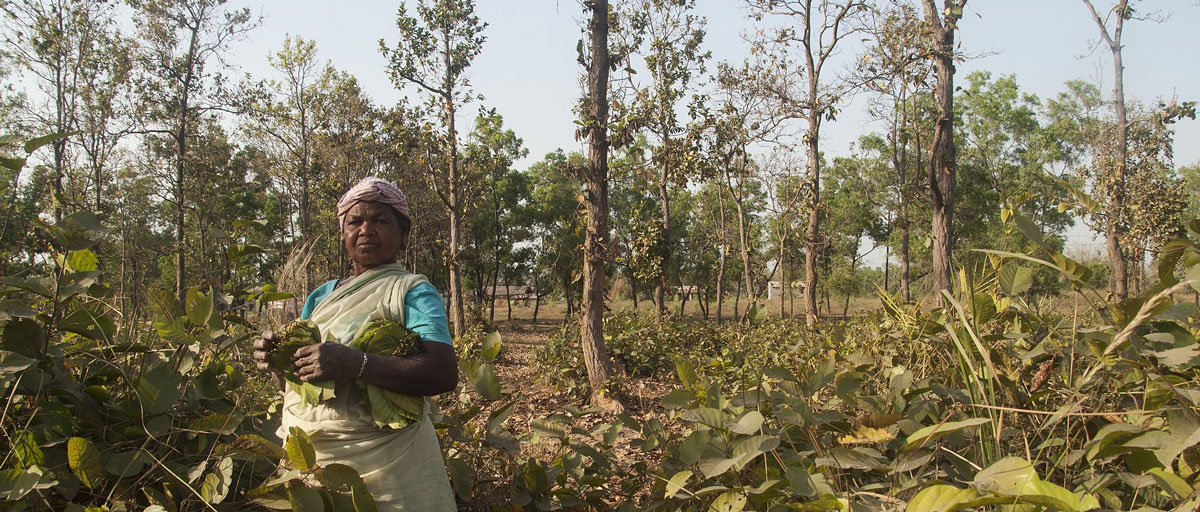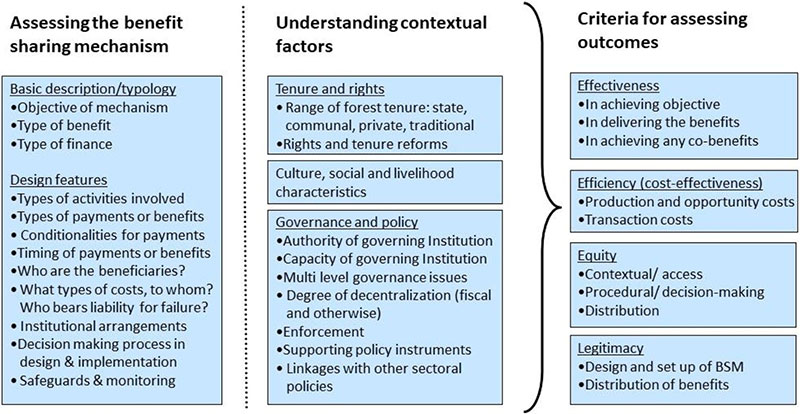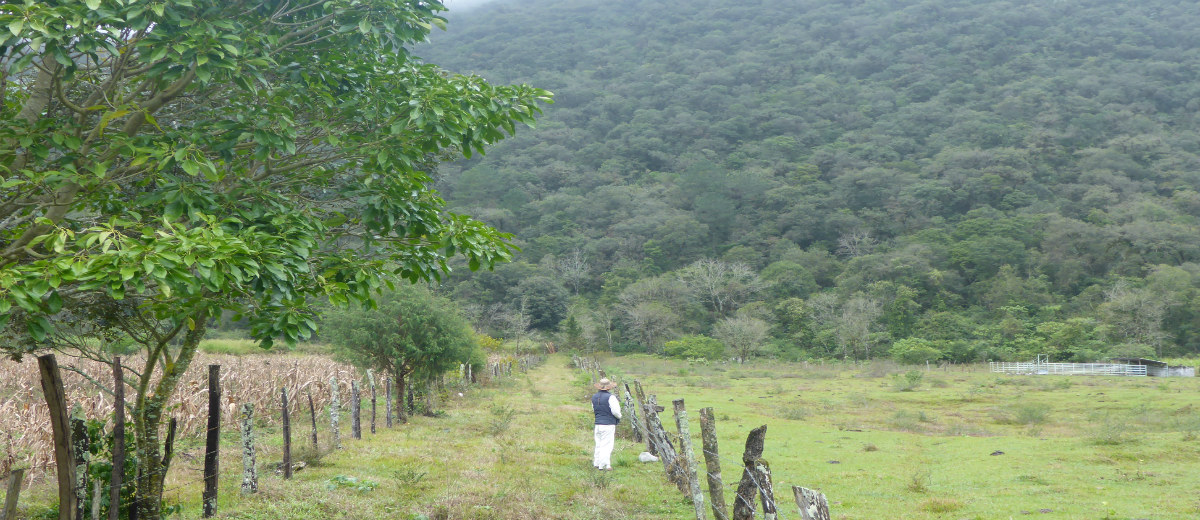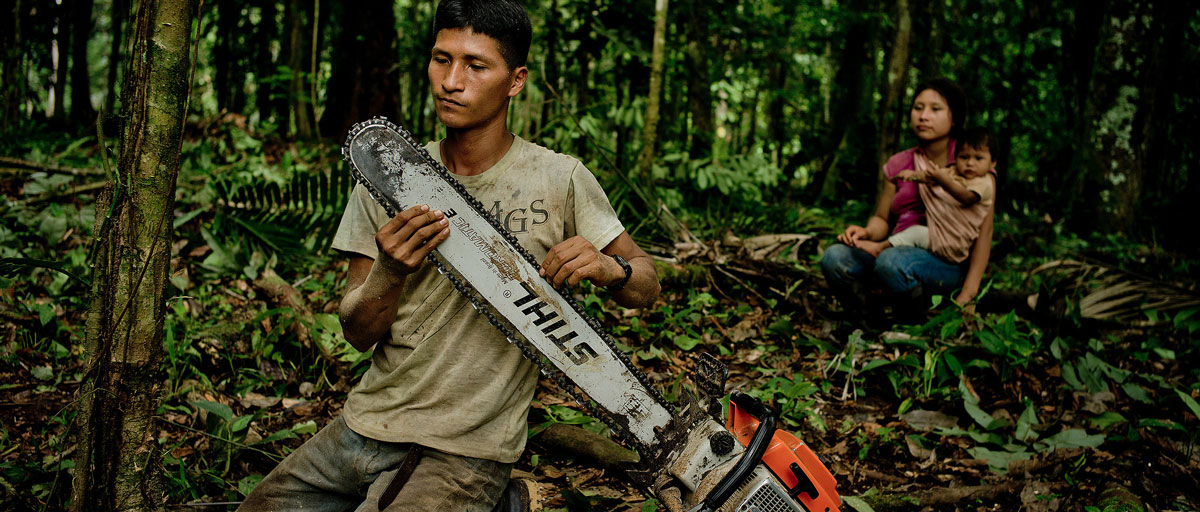
In a study recently published in the Journal of Climate Policy, researchers critically examine four assumptions or “narratives” that have tended to dominate reflections around REDD+. Their findings suggest that to achieve the goals of an equitable benefit sharing mechanism in the implementation of REDD+, contextual nuances must be kept front and centre. Photo: Wikimedia Commons
Bildtext får vara max två rader text. Hela texten ska högerjusteras om den bara ska innehålla fotobyline! Photo: B. Christensen/Azote
EXAMINING REDD+
Keeping nuances front and centre
A critical examination of four dominant narratives informing REDD+ design reveal both flawed and important assumptions
- By looking at schemes implemented in different countries, the authors examined some important assumptions around REDD+
- To achieve many of the goals to help the implementation of an equitable REDD+, contextual nuances must be kept front and centre
- It will also require shifts in economic incentives, discursive practices and power relations
Even if one kept the aside the moral and technical problem of monetizing nature’s services, issues such as equitable benefit sharing and transparency has made the implementation of REDD+, a UN tool which includes policy approaches and financial incentives for reducing emissions from deforestation and degradation, a hotly debated issue.
In a study recently published in the Journal of Climate Policy, centre researcher Grace Wong worked with researchers from the Center of International Forestry (CIFOR)- Indonesia, the Leibnitz Centre for Agricultural Landscape Research - Germany, the University of Edinburgh and the University of Helsinki to “critically examine” four assumptions or “narratives” that have tended to dominate reflections around REDD+.
Their findings suggest that to achieve the goals of an equitable benefit sharing mechanism in the implementation of REDD+, contextual nuances must be kept front and centre.
If left unchallenged, these narratives may solidify into homogenous understanding of the problem and lead to narrowly defined policies that are not reflective of the complexity of the deforestation problem
Grace Wong, lead author
One framework, four narratives
Given the Paris Agreement’s ambitious goals, there is an increased focus on the performance element of REDD+ and priority on finance.. The distribution of net gains from REDD+ initiatives, or benefit sharing, is a critical aspect for motivating reduced deforestation and forest degradation on the ground. However, concerns around benefit sharing are entangled in four persistent narratives.
The four narratives (see image below) cover various aspects of REDD+ benefit sharing such as conditionality aspects of results based payment (RBP) schemes, co-benefits, pro-poor agenda, and safeguards. In their review, Wong and her colleagues looked at how these narratives and their underlying assumptions influenced the implementation of REDD+ in different countries such as Indonesia, Cameroon and Peru.

Framework used for assessing benefit sharing mechanisms: design features, contextual factors and outcome criteria. Click on illustration to access article
The first narrative on transparency and effectiveness in RBPs shows that making cash payments based on fulfilling scheme conditions is not as straightforward as it might appear. Payment amounts and timing needs to be negotiated keeping in mind governance structures and perceptions of equity. It is not only about the economics and incentives, but also about “the political and social acceptance” of the processes in place.
The second narrative highlights the desired emphasis for development co-benefits in addition to carbon outcomes . While this is the political and social reality of REDD+, Wong and her colleagues believe that co-benefits can be structured in ways to have “significant impacts on perception of wellbeing and equity” as case-studies from Indonesia and Vietnam show.
“Evidence suggests that the narrative of co-benefits overloading REDD+ is flawed. As financing for REDD+ is still inadequate relative to the opportunity costs of deforestation, co-benefits will likely remain integral to the objectives of REDD+,” Wong explains.
The third narrative highlights the need for REDD+ benefit sharing to have a “pro-poor focus” and be targeted to poor smallholder communities living near forests. This is seen as politically easier than tackling the large-scale drivers of deforestation. The authors argue that such choices problematically evoke simplistic notions of legitimacy and involve transfer of costs and burdens related to the reshaping of rights and access. .
With regards to the fourth narrative on safeguarding gender and social equity, the authors find that participation of women, despite being protected by safeguards built into schemes, is often notional. Safeguards can be easily relegated to checklists if they are not accompanied with a strategy for addressing power and gendered relations in how information is shared, grievances are resolved and decisions made, they say.
History should not repeat itself
The researchers hope that by analysing evidence from a diversity of contexts and sectors, concerned stakeholders have a better opportunity to learn from past failures and, therefore, improve the design and implementation of REDD+.
“To achieve a major change away from business as usual will require not only shifts in economic incentives and discursive practices, but also shifts in power relations.” Grace Wong concludes.
Methodology
The researchers, as part of a CIFOR led project on REDD+ benefit sharing, carried out reviews of 11 existing benefit sharing mechanisms from within and beyond the forest sector and empirical case studies of forest governance structures in Indonesia, Vietnam, Peru and Cameroon. The researchers developed an analytical framework to structure the reviews and draw targeted lessons for REDD+. The framework highlights how specific benefit sharing characteristics (type of finance, benefits and objectives) and design features (targeting, activities, allocation of benefits and decision-making processes) can lead to outcomes in terms of effectiveness, efficiency, equity and legitimacy. Contextual factors (such as tenure, governance and policy) are considered as critically important as they affect how the design features translate into certain outcomes and inform how the outcomes can be interpreted and understood for their relevance and applicability to other settings.
Wong, G.Y., Luttrell, C., Loft, L., Yang, A., Pham, T.T., Naito, D., Assembe-Mvondo, S., Brockhaus, M. 2019. Narratives in REDD+ benefit sharing: examining evidence within and beyond the forest sector, Climate Policy, DOI: 10.1080/14693062.2019.1618786
Grace Wong’s work has largely converged on assessing social, economic and ecological trade-offs in tropical environments, focusing in particular on the interface of development, socio-political processes and environmental change.










